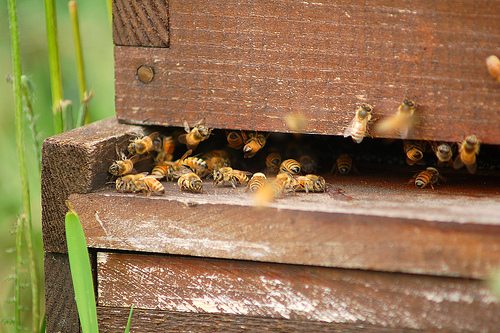

Environment
Bee ‘sperm bank’ proposed to help dwindling colonies
Researchers are looking into genetic diversification to create stronger bees that can survive colony collapse disorder, which sees seemingly healthy bees abandon hives, never to return.
A ‘sperm bank’ for bees, where the semen from dwindling species is collected, frozen and used to breed offspring, is the latest idea by a team of researchers at Washington State University (WSU).
Professor Steve Sheppard said that many of the challenges that bees face, such as pesticides, diseases or monocultures, can weaken the colonies, sometimes compromising the entire hive system.
The US banned the import of live bees in 1922 to avoid the spread of mites – a very serious threats to bees and beekeepers.
“The ban was fairly effective”, said Susan Cobey, WSU research associate involved in the semen bank project. “It prevented tracheal mites from reaching our shores until 1984.”
But years later, the species of mite reached the US.
“Varroa mites will normally kill a colony within two years without intervention by a beekeeper”, Cobey added.
Despite the ban, researchers obtained the permit to import some bees species from Italy, Georgia and the Alps for breeding purposes.
They plan to collect the sperm, by applying tiny pressure to the bee’s abdomen, injecting it into only the strongest and best in the hope of strengthening and diversifying future colonies.
In Europe, the European Food Safety Authority (EFSA) recently found fipronil to be the fourth pesticide identified as harmful to bees. A ban over three neonicotinoid pesticides is set to begin later this year.
Further reading:
EU agency links fourth pesticide with honeybee decline
EU ban on bee-harmful pesticides to begin in December
EU votes to impose landmark pesticide ban to save bees
Loss of $200bn pollinating services will be harmful, scientists warn
Chemical giants did ‘furious lobbying against EU measures to save bees’






























